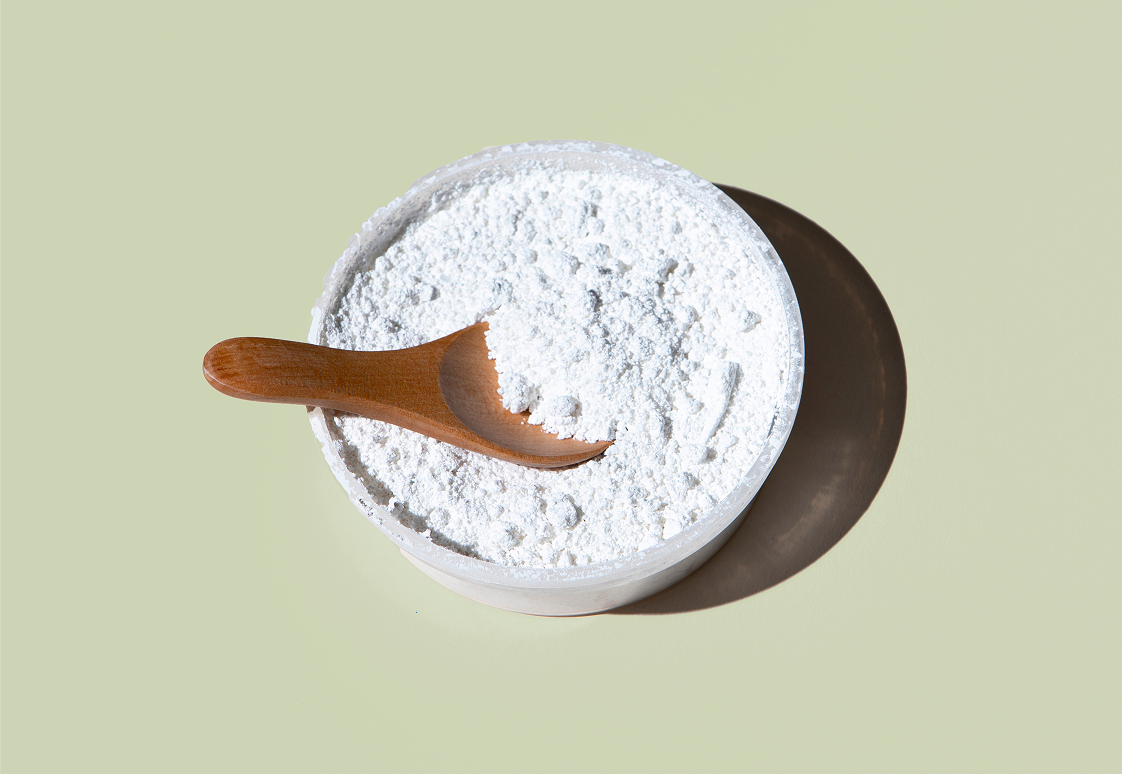Magnesium is one heck of a supplement. This fourth most abundant mineral found in the body supports muscle and nerve function, regulates blood pressure and blood sugar levels, boosts immunity, and most importantly promotes restful sleep. But what exactly is magnesium, and why is it so essential?
What is Magnesium?
Magnesium is a mineral found throughout the body. It is in every cell. It is essential to proper functioning. It is mostly found in bone but also exists in the muscles, soft tissues, and bodily fluids [1].
The mineral can also be found outside the body. It is present in foods and supplements, the earth’s crust, plants, and the sea.
Magnesium is vital to many bodily functions. It converts food into energy, it is essential in protein formation and gene maintenance. It aids with muscle movements and nervous system regulation.
What are the Benefits of Magnesium?
1. Improves Exercise Performance:
Lactate builds up during exercise and may cause fatigue. Magnesium moves blood sugar into the muscles and disposes of lactate to improve exercise performance. It is especially beneficial to older adults who may be dealing with muscle loss.
2. Combats Depression:
Depression is linked to low magnesium levels. Supplementing with magnesium may reduce depression. A 2016 study revealed improvements in mood in people with magnesium deficiencies after taking a daily dose of 500 mg of magnesium for eight weeks [3].
3. May Regulate Blood Sugar:
Research reveals that low magnesium levels may negatively impact the body’s ability to regulate blood sugar. Links between diabetes and magnesium deficiencies have been established. One study revealed people with type 2 diabetes do not get enough magnesium in their diets. Another study showed that people with adequate levels of magnesium are at lower risk for diabetes.
4. Supports Heart Health:
Magnesium may lower high blood pressure and bad cholesterol levels while increasing good cholesterol. A 2019 review revealed it may reduce the risk of heart disease, and stroke.
5. Has Anti-Inflammatory Benefits:
Inflammation is linked to accelerated aging and chronic disease. Magnesium may reduce inflammation and the risk of related conditions. It was shown to reduce the inflammation marker C-reactive protein in people with chronic inflammation.
6. Beneficial to Bone Health:
50% - 60% of the body’s magnesium is found in the bones. It supports bone health and reduces bone loss. Studies have identified a link between osteoporosis and low magnesium levels. A lack of magnesium supplementation has also been shown to increase bone fractures.
7. Muscle Recovery:
Magnesium is ideal for muscle recovery because it has anti-inflammatory properties. It reduces muscle contractions which can cause cramping. It also prevents lactic acid buildup which contributes to pain and tightness. It provides restorative sleep so muscles can recover sooner.
The Relationship Between Magnesium and Sleep
Magnesium may be a wonder mineral, but it truly stands out for its ability to promote better sleep [2]. It regulates neurotransmitters involved in sleep such as gamma-aminobutyric acid (GABA). GABA helps the body and mind relax so you fall asleep and stay asleep. Its ability to help people fall asleep and stay asleep is especially beneficial to REM sleep, which is important for cognitive and emotional health
The mineral reduces symptoms associated with conditions that inhibit sleep. For example, one review of older adults with insomnia revealed magnesium can reduce the time it takes people to fall asleep by an average of 17 minutes. Another study of nearly 4000 adults revealed an increased magnesium intake can improve sleep quality and duration.
Magnesium may also reduce Restless Leg Syndrome. This neurological disorder can cause tingling and tightness in the legs making it difficult to sleep at night. Some studies reveal that the condition has been linked to low magnesium intake, but more research is needed to establish a connection.
The mineral also addresses one of the most common reasons we lay awake at night- stress and anxiety. It regulates the stress hormone cortisol to calm the nervous system. The results are due to magnesium’s ability to increase GABA activities and modulate neurotransmission which can lead to racing thoughts.
It also targets inflammation and related pain that can keep us awake at night.
Magnesium vs. Melatonin
Magnesium and melatonin are two supplements often discussed in conversations surrounding sleep health. Melatonin is a hormone naturally produced by the body to regulate the sleep-wake cycle. Our bodies produce more melatonin at night to prepare us for sleep.
You can also take melatonin as a supplement to make you sleepy at night. However, it has been known to cause side effects like nausea, dizziness, and headache. It has also not been tested for long-term use.
Magnesium helps your body produce melatonin. It is more well-studied than melatonin and approved for long-term use. It may cause digestive issues and other side effects in some users, but it is generally considered safe.
MoonBrew Uses the Power of Magnesium to Promote Better Sleep
Those struggling to improve their sleep quality may consider the MoonBrew magnesium supplement. It combines magnesium with reishi mushrooms which calm your mind and promote relaxation. It also contains chamomile which leaves you feeling refreshed in the morning. MoonBrew is available in hot cocoa and tea varieties. Each provides unique flavors and effects that promote better sleep. Add them to your routine to benefit from a deeper, more restorative sleep.
References
[1] Magnesium: Fact sheet for health professionals [2] The impact of magnesium supplementation on sleep quality [3] The effects of magnesium supplementation on subjective anxiety and stress [4] Association between dietary magnesium intake and C-reactive protein levels in the US adult population [5] Magnesium and muscle performance in older persons [6] Magnesium sulfate for acute stroke
